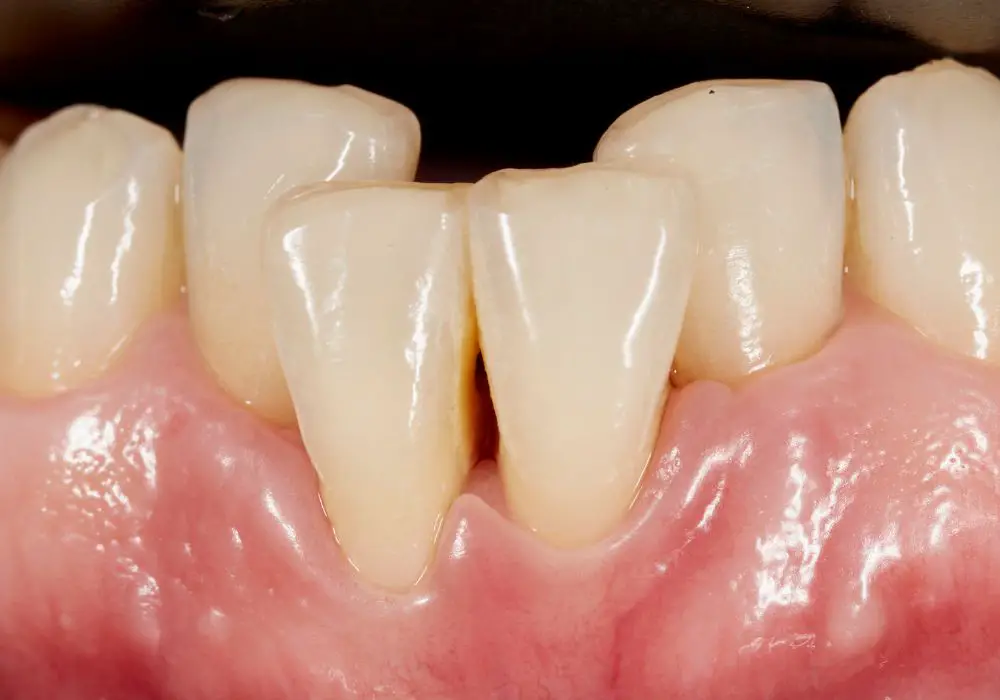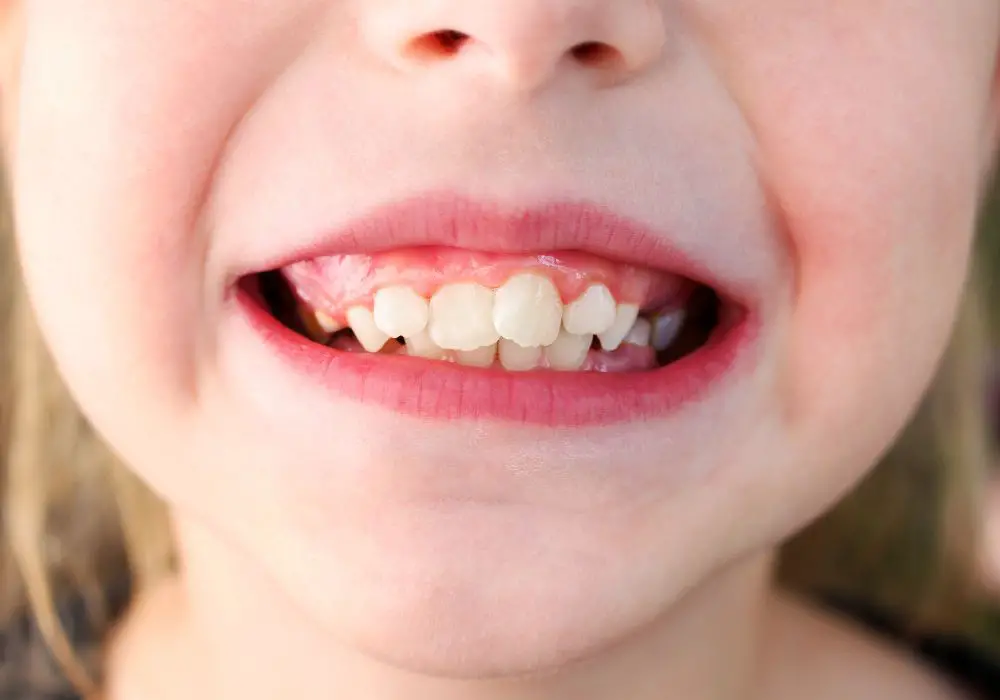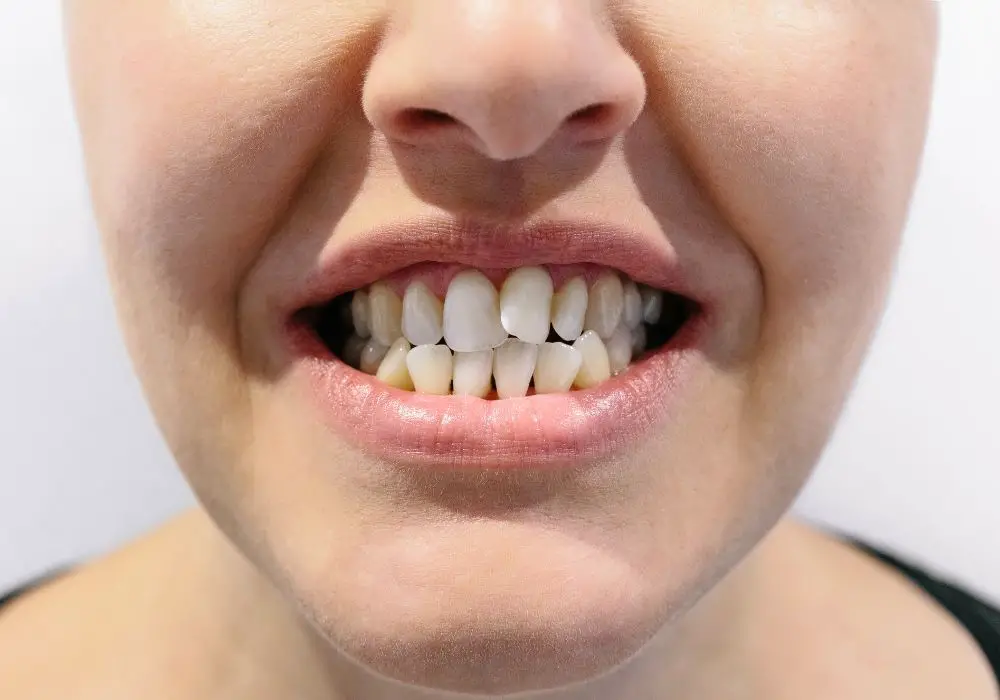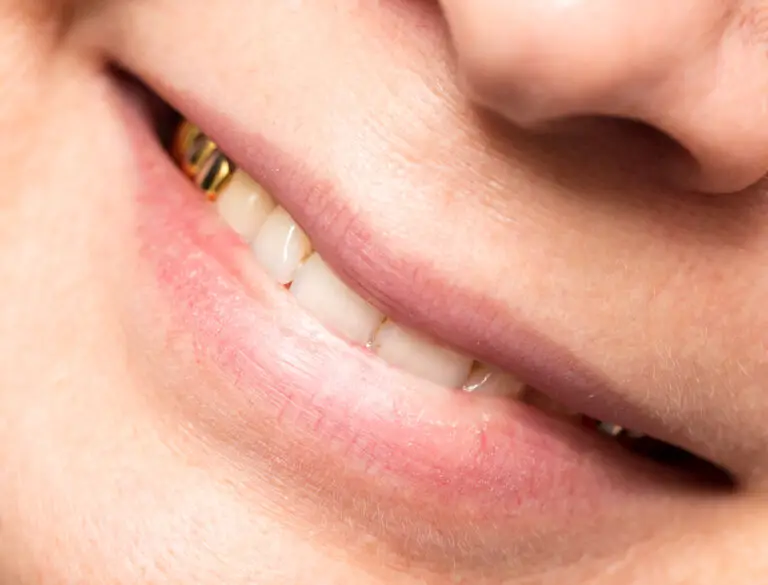Do you believe in lucky teeth? Many people think that having certain teeth arrangements can bring good luck and prosperity. One of the most common beliefs is that having tooth over tooth is a sign of good fortune. But is there any truth to this superstition?
According to some cultures, tooth over tooth is considered lucky because it symbolizes abundance and wealth. However, there is no scientific evidence to support this claim. In fact, having tooth over tooth can cause some problems, such as difficulty chewing and cleaning teeth properly, which can lead to plaque buildup and other dental issues.
Despite the lack of evidence, many people still believe in the luck of tooth over tooth. Some even go as far as seeking orthodontic treatment to achieve this tooth arrangement. But before you jump on the bandwagon, it’s important to consider the potential disadvantages and consult with a dental professional to determine the best course of action for your oral health.
Tooth on Tooth: A Cultural Perspective

When it comes to teeth, different cultures have different beliefs and superstitions. Some cultures believe that teeth are a sign of good luck, while others believe that teeth are a sign of bad luck. In this section, we will explore the cultural beliefs surrounding tooth on tooth.
African Beliefs
In many African cultures, teeth are believed to be a sign of good luck. For example, in some cultures, a child who is born with teeth is believed to be a natural leader. In other cultures, it is believed that a person with a gap between their teeth will be lucky in life.
Asian Beliefs
In some Asian cultures, teeth are believed to be a sign of bad luck. For example, in Japan, it is believed that if you dream about losing a tooth, it is a sign that you will lose a loved one. In China, it is believed that if you dream about teeth, it is a sign that you will have money problems.
European Beliefs
In many European cultures, teeth are believed to be a sign of good luck. For example, in some cultures, it is believed that if you find a tooth, you will have good luck. In other cultures, it is believed that if you dream about teeth, it is a sign that you will have good fortune.
Overall, tooth on tooth beliefs vary greatly across different cultures. While some cultures see teeth as a sign of good luck, others see them as a sign of bad luck. It is important to remember that these beliefs are cultural and may not necessarily reflect reality.
Scientific View on Tooth on Tooth
Tooth on tooth, also known as crowding, is a common dental problem that can occur in both children and adults. While some cultures believe that tooth on tooth is a sign of good luck, there is no scientific evidence to support this claim. In fact, crowding can lead to a number of dental issues if left untreated.
Crowding occurs when there is not enough space in the mouth for the teeth to grow in properly. This can cause the teeth to overlap or become twisted, leading to a crooked smile. Crowding can also make it difficult to clean the teeth properly, which can lead to tooth decay and gum disease.
There are several factors that can contribute to crowding, including genetics, poor oral hygiene, and habits such as thumb sucking or tongue thrusting. While some people may be more prone to crowding than others, it is important to seek treatment if you notice any signs of crowding.
Treatment for crowding typically involves orthodontic treatment such as braces or clear aligners. These treatments can help to gradually shift the teeth into the correct position, creating a straighter, healthier smile. In some cases, extractions may be necessary to create enough space in the mouth for the teeth to grow in properly.
In conclusion, while some cultures may view tooth on tooth as a sign of good luck, there is no scientific evidence to support this claim. Crowding can lead to a number of dental issues if left untreated, so it is important to seek treatment if you notice any signs of crowding. Orthodontic treatment can help to create a straighter, healthier smile and prevent future dental problems.
Psychological Implications of Believing in Luck

Believing in luck can have a significant impact on your psychological well-being. Some people believe that luck plays a crucial role in their lives, while others attribute their successes and failures to their own abilities and efforts. Here are a few psychological implications of believing in luck:
Lack of Control
Believing in luck can lead to a sense of helplessness and lack of control over your life. If you think that your fate is determined by luck, you may feel that you have no control over your future. This can lead to feelings of anxiety and depression, as you may feel that your life is out of your hands.
Attribution Bias
Believing in luck can also lead to an attribution bias, where you attribute your successes and failures to external factors rather than your own abilities. For example, if you win a game of chance, you may attribute your success to luck rather than your own skills or strategy. This can lead to a lack of confidence in your abilities and a reluctance to take risks.
Unrealistic Expectations
Believing in luck can also lead to unrealistic expectations. If you think that luck is the key to success, you may expect everything to work out perfectly for you without any effort on your part. This can lead to disappointment and frustration when things don’t go as planned.
Self-Fulfilling Prophecy
Believing in luck can also become a self-fulfilling prophecy. If you believe that luck determines your fate, you may not put in the effort required to achieve your goals. This can lead to failure, which reinforces your belief in luck and creates a cycle of self-defeating behavior.
Overall, while believing in luck can sometimes provide comfort in uncertain situations, it can also have negative psychological implications. It is essential to recognize the role that luck plays in your life and take responsibility for your own actions and decisions.
Tooth on Tooth in Popular Culture
Tooth on tooth is a phenomenon where a new tooth grows over an existing one. In many cultures, tooth on tooth is considered lucky and a sign of good fortune. Tooth on tooth has also been referenced in popular culture in various forms.
In the movie “The Tooth Fairy”, Dwayne Johnson plays a hockey player who is sentenced to serve as a tooth fairy for a week. In the movie, tooth on tooth is referenced as a sign of good luck and a special tooth is given to the protagonist to help him in his duties as a tooth fairy.
In Indian astrology, tooth on tooth is considered lucky and is believed to bring good fortune to the person. It is believed that people with tooth on tooth are destined for success and prosperity.
In Japanese culture, tooth on tooth is considered a sign of beauty and is highly desirable. Many Japanese women undergo cosmetic procedures to get tooth on tooth as it is believed to enhance their appearance.
In some African cultures, tooth on tooth is believed to be a sign of strength and courage. Warriors who have tooth on tooth are considered to be more powerful and are respected in their communities.
Overall, tooth on tooth has been referenced in various forms in popular culture and is considered lucky and desirable in many cultures around the world.
Impacts of Tooth on Tooth Belief on Dental Health
Beliefs about tooth on tooth vary across different cultures and ethnic groups. While some cultures view it as a sign of good luck, others believe it is a bad omen. However, regardless of cultural beliefs, tooth on tooth can have a significant impact on dental health.
One of the common cultural beliefs is that tooth on tooth is a sign of good luck. However, this belief can lead to a lack of concern for dental health. People may avoid seeking dental care, thinking that they are blessed with good luck and do not need to worry about their dental health. This can lead to untreated dental issues such as cavities, gum disease, and tooth loss.
On the other hand, some cultures view tooth on tooth as a bad omen. This belief can lead to fear and anxiety about dental health. People may avoid seeking dental care, thinking that they are cursed and that dental treatment will only make things worse. This can lead to untreated dental issues, which can worsen over time and result in severe dental problems.
It is essential to understand that cultural beliefs about tooth on tooth should not be a barrier to seeking dental care. Regular dental check-ups and cleanings can help prevent dental problems and maintain good oral health. It is also important to practice good oral hygiene habits such as brushing twice a day, flossing, and avoiding sugary foods and drinks.
In conclusion, cultural beliefs about tooth on tooth can have an impact on dental health. However, it is important to prioritize dental health and seek regular dental care regardless of cultural beliefs. By taking care of your teeth and gums, you can maintain good oral health and prevent dental problems.
Addressing Misconceptions: Tooth on Tooth
When it comes to tooth on tooth contact, there are many misconceptions that people believe to be true. Here are a few common misconceptions and the truth behind them:
- Tooth on tooth contact is lucky: There is no scientific evidence to support the belief that tooth on tooth contact is lucky. In fact, excessive tooth on tooth contact can lead to tooth wear, chipping, cracking, and even tooth loss. It is important to maintain proper dental hygiene and visit your dentist regularly to prevent these issues.
- Tooth on tooth contact is necessary for proper chewing: While some tooth on tooth contact is necessary for chewing, excessive contact can cause damage to your teeth. Proper chewing can be achieved through a combination of tooth on tooth contact and grinding food between your teeth.
- Tooth on tooth contact is a sign of a healthy mouth: Tooth on tooth contact can actually be a sign of dental issues such as misaligned teeth or a bad bite. If you are experiencing excessive tooth on tooth contact, it is important to visit your dentist to address any underlying dental issues.
It is important to understand the truth behind these misconceptions to maintain proper dental health. Remember to practice good dental hygiene and visit your dentist regularly to prevent dental issues.
Changing Perspectives: Modern Views on Tooth on Tooth

When it comes to tooth on tooth, there have been varying beliefs and superstitions throughout history. However, modern perspectives have started to shift towards a more practical and scientific understanding of this phenomenon.
Anthropological research has shown that tooth wear is a normal physiological phenomenon and that teeth, although worn, remain functional throughout life. This means that tooth on tooth is not necessarily a sign of luck or fortune, but rather a natural occurrence that is influenced by factors such as diet and lifestyle.
Introducing the anthropological perspective into modern dentistry has given insight into the nature and extent of tooth wear. By combining anthropological evidence with clinical knowledge and experience, it is possible to provide a more informed and biologically-based approach to the management of tooth wear.
Current research on tooth implantation, attachment, and replacement in amniota has also shed light on the importance of teeth and dentitions in comparative anatomy, systematics, physiology, and ecology. This has further reinforced the idea that tooth on tooth is not a mystical occurrence, but rather a biological process that serves a vital function in our bodies.
In conclusion, modern perspectives on tooth on tooth have shifted towards a more practical and scientific understanding of this phenomenon. While there may still be cultural beliefs and superstitions surrounding tooth on tooth, it is important to recognize the natural and biological aspects of this occurrence. By doing so, we can better understand the importance of dental health and the role that tooth wear plays in our overall well-being.
Frequently Asked Questions
Are crooked teeth considered lucky?
In some cultures, crooked teeth are considered a sign of good luck, particularly in Japan. The Japanese believe that uneven teeth bring charm and character to a person’s smile. However, this belief is not universal and varies from culture to culture.
What is the spiritual meaning behind overlapping teeth?
Overlapping teeth are believed to symbolize one’s ability to adapt and overcome obstacles in life. In some cultures, overlapping teeth are seen as a sign of strength and resilience.
What is the significance of wisdom teeth in Hindu mythology?
In Hindu mythology, wisdom teeth are believed to represent the third set of teeth that a person gets in their lifetime. These teeth are thought to symbolize wisdom and maturity, as they typically appear in adulthood.
Is there any superstition about gaps between teeth in Islam?
In some Islamic cultures, gaps between teeth are believed to be a sign of beauty and good luck. It is thought that the gaps allow for more air to flow through the mouth, which is seen as a desirable trait.
What are some teeth superstitions around the world?
There are many superstitions surrounding teeth that vary from culture to culture. In some parts of Africa, for example, it is believed that a child’s first tooth should be thrown into a fire to bring good luck. In other cultures, it is believed that losing a tooth is a sign of impending death.
What does it mean to have overlapping teeth?
Overlapping teeth, also known as crowding, occurs when there is not enough space in the mouth for all of the teeth to fit properly. This can cause the teeth to overlap or twist, which can lead to dental problems such as tooth decay and gum disease. Treatment for overlapping teeth may include braces or other orthodontic procedures.






